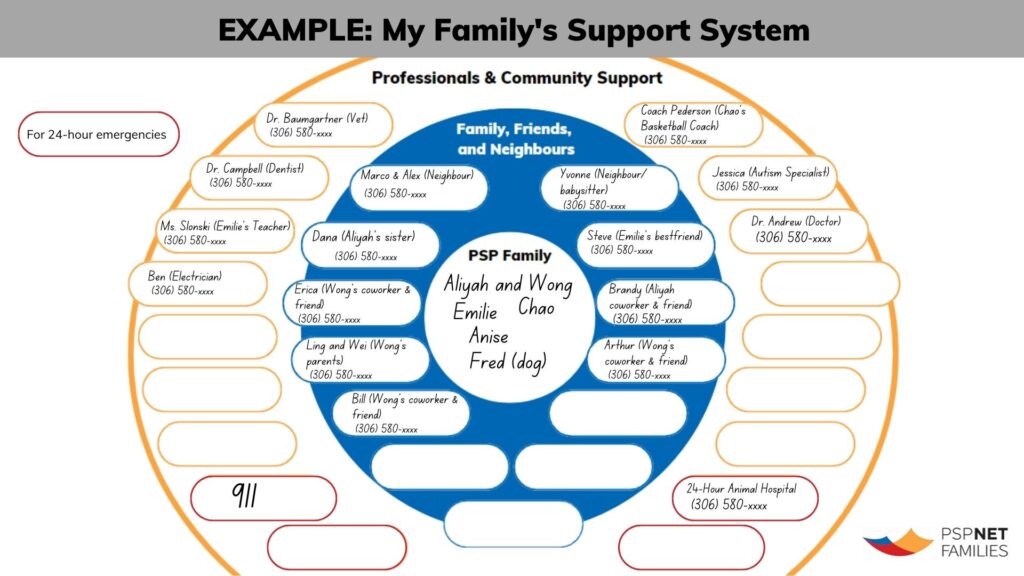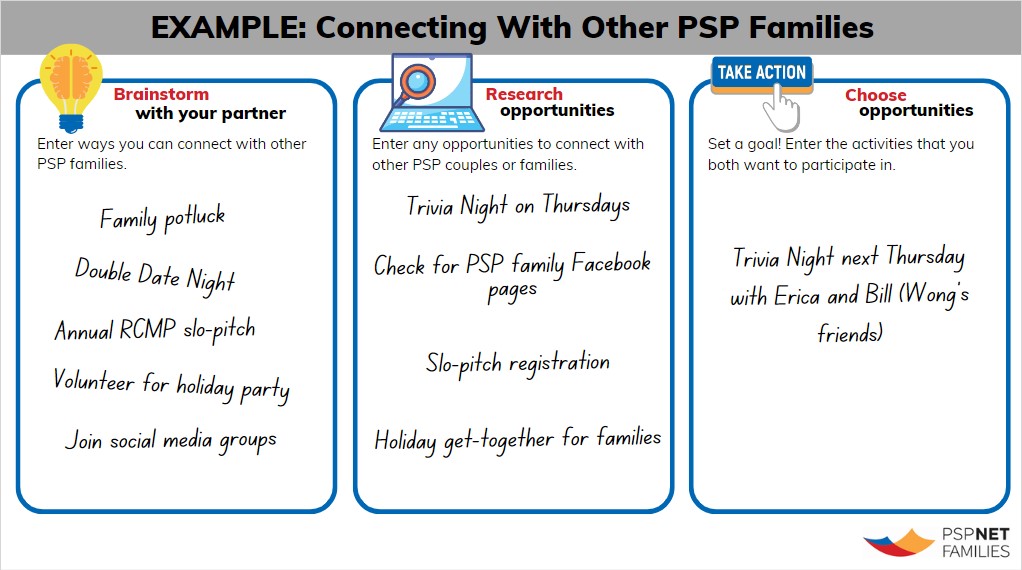Need Something More?
Check out our self-directed Spouse or Significant Other Wellbeing Course.

Take a moment to consider the type of supports that you want or need. Also think about who is better at providing different types of support. For example, your sibling may be a good listener, friends may lend you their truck, and your family physician may provide reliable information.
The public safety organization that you are associated with may be an avenue for building supports connected to the PSP career. Support can vary depending on the organization. The following are things you could ask about:
Think about all the people and organizations that support you and your family. Consider family and friends who you can count on for help, childcare providers, health care professionals (e.g., family doctor, psychologist), other professional services (e.g., mechanic, pet care), 24-hour emergency services, etc.. Review this example of a support system for a fictional PSP family (Aliyah and Wong).

Next, use the blank templates to fill in your connections and think about your system of support. You can use the templates to identify supports for individual family members or the family as a whole.
DOWNLOAD: Family and Individual Support System Templates
Review your map and think about your current support system:
PSP families may find that support from other PSP families is helpful. These families understand the demands of PSP work and the impacts on family life. Experienced PSP families can share their experiences with those who are beginning their careers or starting a new relationship. This can reduce stress and help families adapt to the newer PSP lifestyle.
Do you have other PSP families as a part of your support system? If you are interested in building or strengthening relationships with other PSP families, consider the following points below:
Below is an example of how you and your PSP partner can plan to connect and strengthen relationships with other PSP families.

Let’s make a game plan on how to connect with other PSP families by filling out the form with your PSP partner.
Check out our self-directed Spouse or Significant Other Wellbeing Course.
Mancini, J., Bowen, G., & Martin, J. (2005). Community social organization: A conceptual linchpin in examining families in the context of communities. Family Relations, 54(5), 570-582. https://doi.org/10.1111/j.1741-3729.2005.00342.x
Walsh, F. (2003). Family resilience: A framework for clinical practice. Family Process, 42(1), 1-18. https://doi.org/10.1111/j.1545-5300.2003.00001.x
Youngcourt, S. S., & Huffman, A. H. (2005). Family-friendly policies in the police: Implications for work-family conflict. Applied Psychology in Criminal Justice, 1(2), 138-162.